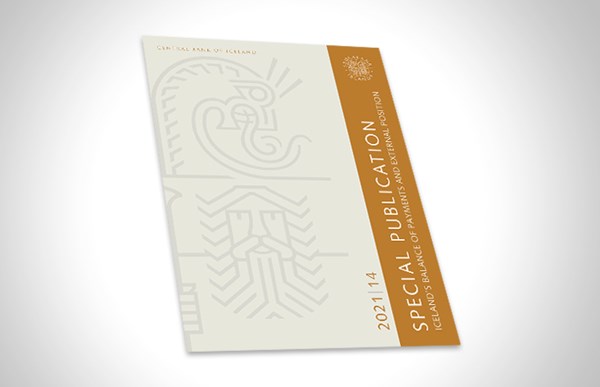Special Publication 14: Iceland’s balance of payments and international investment position

The Central Bank of Iceland has published a report on Iceland´s balance of payments, external position and associated vulnerabilities. The report discusses the impact of the COVID-19 pandemic on the balance of payments and external position in 2020 and sketches out a balance of payments scenario for 2021. Particular emphasis is placed on developments in the balance of payments and capital flows, as well as on the impact of changes in flows on external position and its composition, and on the domestic foreign exchange interbank market.
The main conclusion drawn in the report is that although the pandemic significantly affected Iceland’s balance of payments in 2020 and will continue to do so throughout 2021, the economy was well prepared to withstand the shock. The current account balance has been positive since 2009. This, together with successful liberalisation of the capital controls imposed in 2008, greatly improved Iceland’s external position and enabled the accumulation of large international reserves. At the beginning of the pandemic, Iceland’s foreign liabilities were at a twenty-year low, its international reserves ample, and its positive net international investment position at its most favourable in the history of the Republic. The domestic economy was therefore well prepared to face worse external conditions and a reversal of non-residents’ investment in domestic financial assets.
See the report here: Special Publication no. 14: Iceland's balance of payments, external position and vulnerabilities.
